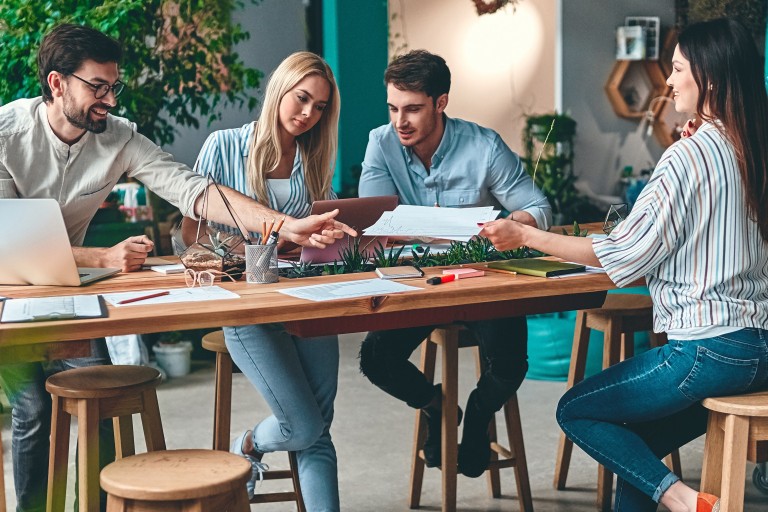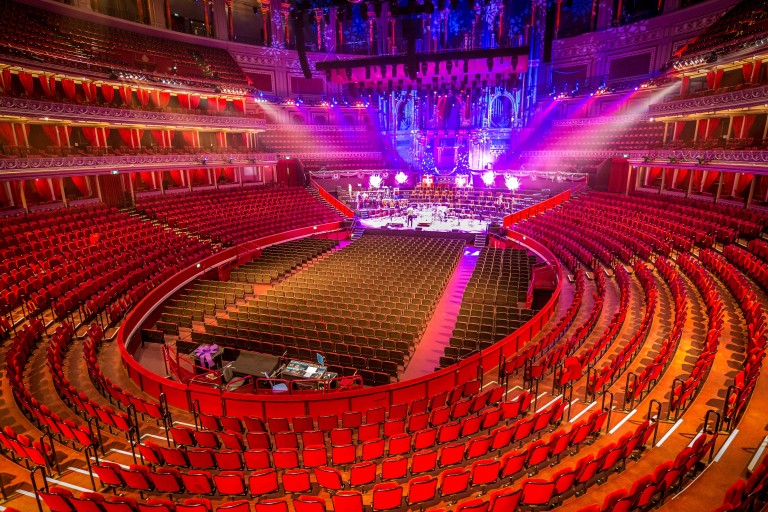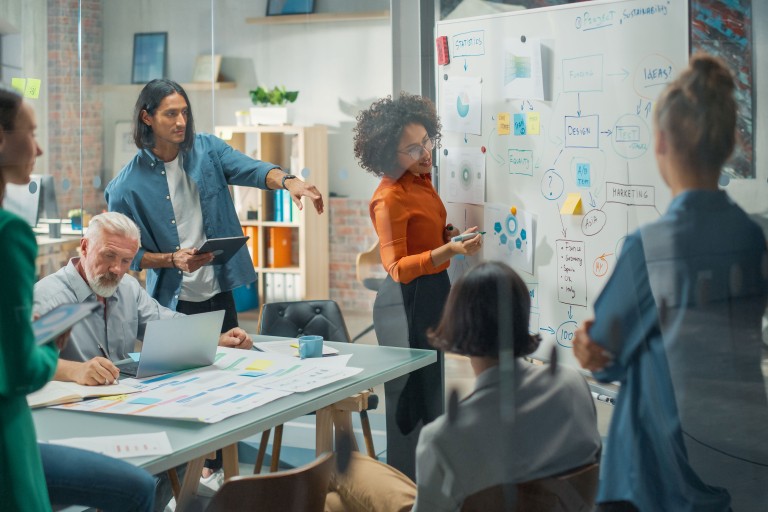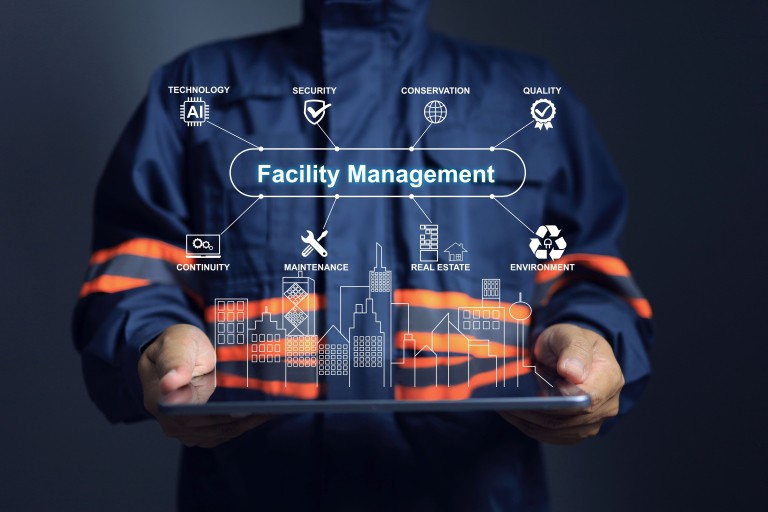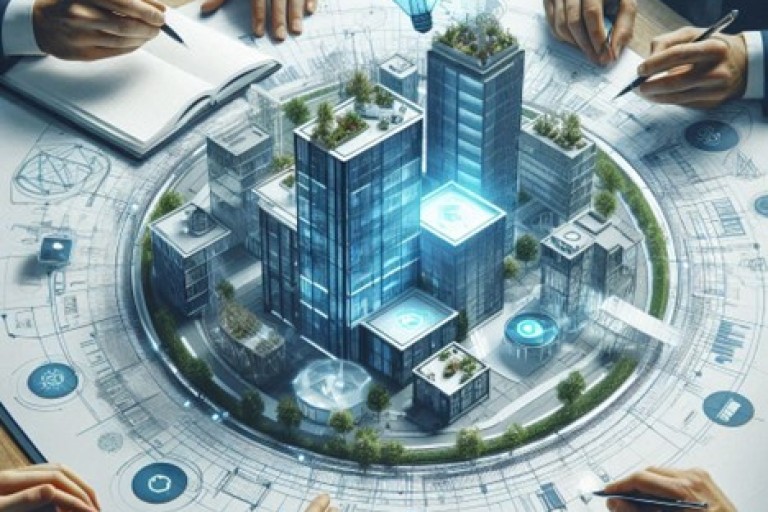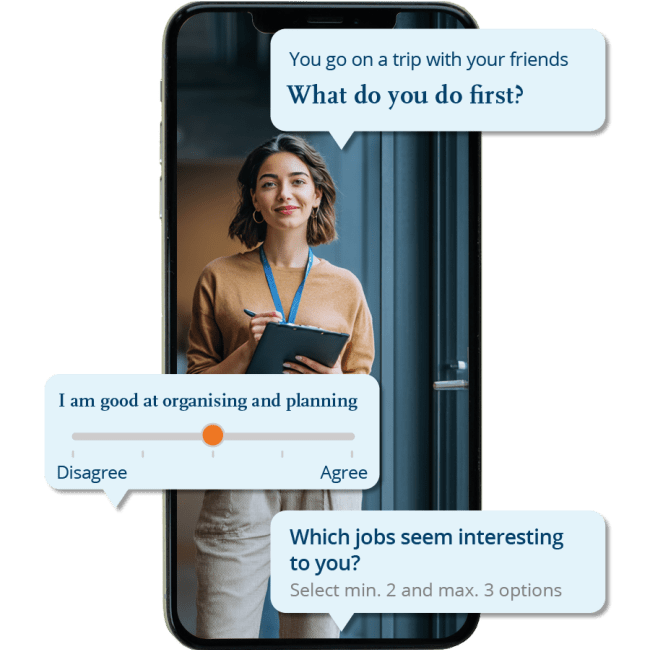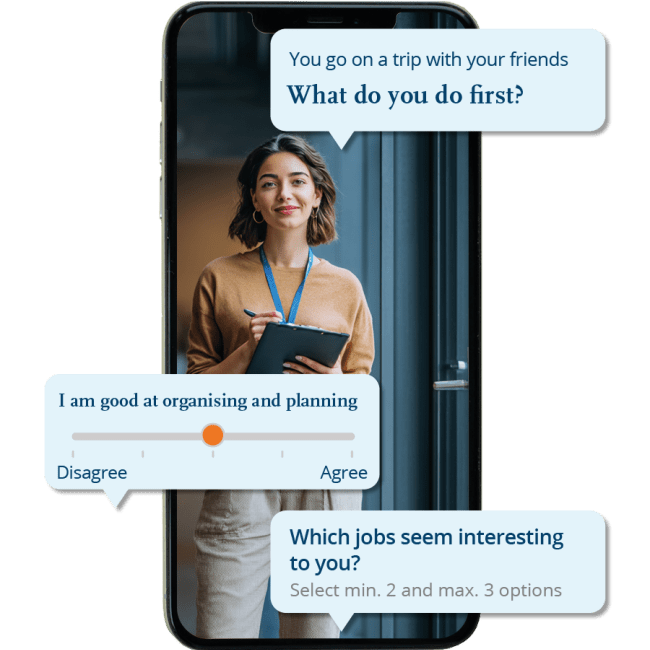Come and meet us
Walking around on campus is the best way to truly experience BUas. Sign up for one of the upcoming events or activities.
Do you want to create inspiring and sustainable workspaces in an international environment?
Discover if Facility Management is right for you with our quiz.
- It only takes 3 minutes
- Your result in seconds
- Learn more about Facility Management
Start the quiz
Study overview
The programme consists of four years. Each year consists of four blocks of nine to ten weeks each. More information about the programme and the courses can be found in the complete programme overview. Below, we will explain what you can expect in the first year.
In the first year – the propaedeutic phase – you will complete four blocks. Based on a project/assignment from the professional field, you will start acquiring the right knowledge and developing your professional skills. Each block consists of a number of courses.
During your first week, you will visit a company with your class and immediately get a glimpse behind the scenes of the facility management industry.
- Block A - Fundamentals of Facility Management
Discover the world of Facility Management. This block focuses on introducing you to the national and international world of Facility Management. Through a project based on your future professional practice, you will not only become acquainted with this world, but you will also learn the basic principles of Operations Management, Finance, and Workplace Management, and lay the foundation for developing skills such as critical thinking, ethical/responsible behaviour and conducting research.
- Block B – Service Excellence
Are you ready to show off your creativity? Design a unique concept for a company (e.g. a coffee corner) and discover the secrets behind successful concepts. Work in teams to gather insights, describe key concepts, and discover how different areas of knowledge are connected. Why does one idea work and another not? This is your chance to shine!
- Block C – Organisational Dynamics
Join us on an expedition! Discover and understand the needs and wishes of visitors and users in a building, airport, theatre – anywhere! Focus on improving their experience, well-being and safety. In the exploration phase, you will empathise with the visitors or users of a working environment and use research methods to understand their needs. You will then zoom in on a specific topic, collect data, and come up with innovative workplace concepts. Finally, you will translate your findings into realistic solutions that improve the experience, well-being and safety of employees and visitors alike. This is your chance to develop creative and practical solutions!
- Block D – Buildings & Spaces
Design the workplace of the future! During this block, you will work in teams to design a workplace for an international company based in the Netherlands. You will analyse the organisation, take their values and operational needs into account, and integrate space planning, technology, and financial feasibility into a proposal. This is your chance to turn your ideas into reality!
- Years 2 and 3
After the first year, you will enter the main phase. Here, years 2 and 3 merge into each other. In your third semester, you will be at school with all the students of your year. However, in semesters 4 and 5 you will switch: some students go on placement in semester 4, while others stay in school. In semester 6, everyone returns to school again. In these semesters you will take part in the following modules:
Developing People and Organisations
In this module, you will mainly explore people’s behaviour and what that means for an organisation (or for working in an organisation). The courses you take are Oganisational Behaviour, Business Law & Ethics, Research & Design, and Economics.Managing Business Performance and Innovation
In this module, you will learn all about customer relations, service marketing, and pricing strategies. The courses you take are Accounting, Operations Management, Management Information Systems, and Marketing.Exploring the International facility Industry (placement)
During this five-month placement, you will experience what it is like to live and work in an intercultural facility management environment abroad.In year 3, you will take the Creating Impact module. In this module, you will work with a group of students to design a sustainable strategic business that creates impact. An engaging challenge where you will put into practice the knowledge and skills you have gained in the first two years of study! This course will immerse you in the industry sustainability debate, develop your strategic thinking skills and expand your knowledge of experience design. For inspiration, you will also visit international companies. Understanding the interrelationship between these aspects will form the basis of your design!
- Year 4
In your graduation year (year 4), you will work on your thesis and you can do another study component of your choice, such as an exchange, a minor, a pre-master’s, an additional placement, or writing a consultancy report or business plan. For your thesis as well as the optional part, you will obviously choose a topic (or context) that suits you perfectly! You will be supported in this process by a study coach, who will guide you through to your thesis defence.
- Placement
The placement period falls in the second semester of year 2 or the first semester of year 3.
For 24 weeks you will experience living and working in a real-life, cross-cultural facility environment abroad. You work approximately 40 hours per week. During your placement, you may receive a visit from your supervising lecturer, to make sure that you are doing well, that your placement company is taking good care of you, and of course, to discuss your professional and personal development.
We therefore have a geographical cluster of placement destinations: Australia (Sydney), Austria, Aruba, Bonaire, Saint Martin, Belgium, Germany, Ireland, Finland, Malta, Norway, Sweden, Denmark, UK, United Arab Emirates (Dubai) and Qatar. Please note that these destinations might change due to unforeseen circumstances.
- Exchange
Studying abroad is the perfect opportunity to push your boundaries. You build up an international network, learn a new language, and gain insight into intercultural differences. BUas works with universities all over the world, so as an exchange student you have plenty of options. Some examples are:
- Helsinki, Finland
- Flagstaff, United States
- Kufstein, Austria
- Hong Kong Polytechnic University, China
- Budapest Business School, Hungary
- Minor
With a minor, you choose for yourself: do you want to specialise in your field or broaden your knowledge? You can take a minor at BUas, but you can also choose to do a minor at another Dutch university of applied sciences, or even abroad.
- Pre-master
In your final year of study, you may choose to attend the academic pre-master's track in Strategic Business Management and Marketing (SBM). This pre-master will give you direct access to Master of Science programmes at top universities such as Maastricht, Rotterdam, Tilburg, Antwerp (B), and Warwick (UK). You can also move on to our university master's degree in Leisure and Tourism Studies. This way, you can earn a university master's degree in just five years – or even in four years, through the accelerated (three-year) track.
This study programme uses a wide variety of teaching methods. You will attend lectures, workshops, practical classes at our training company Sibelicious, and get many group assignments. You will be assessed through written exams, final presentations, and portfolios. The Facility Management programme is characterised by small-scale education, which means that you will build a good relationship with your lecturers and also have several one-to-one meetings with your coach.
In this programme, we train you to become an all-round facility manager. First, you will work on your personal and professional development. In our learning community, you will not only work on acquiring knowledge, but also on developing your skills. We will help you learn what you need to know and do, offering practical, on-the-job training. After all, being a professional requires a combination of qualities, attitudes, and skills. This programme will give you everything you need to secure the international job of your dreams!
Study load
On average, you will spend 35 hours per week on your studies. You will attend lectures and work on projects, and prepare for examinations and assessments. Classes take place between 9.00 and 17.00 hrs. During practical weeks, you will work full-time in the kitchen, restaurant or at the Visitor Centre on campus. Class hours are then between 8.00 and 22.00 hrs.
- A typical week
Below, you will find an example of a typical week. Keep in mind that this schedule may vary each week, and this example serves as an indication.
Monday:
- 11:00-13:00 Workshop on Management Development Programme
- 13:00-14:00 Lunch at the catering outlet
- 14:00-16:00 Workshop on FM Specific
Tuesday:
- 09:30-11:00 Lecture on Operations Management
- 11.00-13.00 Individual meeting with your coach, followed by lunch
- 13:00-15:00 Workshop on Research and Design
Wednesday:
- 09:00-12:00 Workshop: Designing an Office Environment (Operations Management)
- 12.00-12.30 Coffee with a lecturer to ask questions (together with your project group)
- 12:30-13:00 Quick lunch
- 13:00-15:00 Workshop on Ethics
- 15.00-15.30 Giving a presentation for FM Specific
Thursday:
- 10:00-12.00 Lecture on Finance
- 12.00-13.00 Studying at school together with your classmates
- 14:00-15:00 English class
- 15:00-17:00 Lecture on Business Law
Friday:
- 09:00-11:00 Workshop on Research and Design
- 11:00-12:00 Lunch with classmates
- 12:30-14:30 Guest lecture by an alumnus who works at Enexis as Facility Coordinator
Study coaching
Throughout your studies, you will work on developing your personal and professional skills. You will do this together with your study coach. Topics covered in this programme include time management, communication skills, teamwork, learning styles, leadership styles, report writing and referencing, digital skills, and working with specific computer programs. In your second year, you will start working with Lumina Spark, which will give you insight into your strengths and areas for development.
In the final stages of the study programme, the focus shifts to the professional field, where decision-making, senior leadership, negotiation, and entrepreneurship are important topics.
Part of the Personal and Professional Development programme is your Learning Logbook. You create this yourself, with help from your study coach. You use it to review your study progress and professional development together.f, guided by your study coach. Based on this plan, you will review your study progress and development together with your study coach.
Student well-being
BUas encourages and helps you to make the most of yourself, whatever your circumstances. Maybe you have a chronic illness, are a family carer, a competitive athlete, or juggle your studies with running your own business? Our study coaches, student counsellors and student psychologists are here to help. Do you need extra support or advice? Or extra facilities? Then take a look at the options here.
Facility services are everywhere, so it makes sense that this programme allows you to integrate with specialisations from our Tourism and Leisure & Events programmes! You make this choice at the end of year 1. Instead of continuing with the standard Facility Management curriculum, you will then embark on a specialisation from the perspective of Facility Management.
- Attractions & Theme Parks Management (English)
From the second year, you can choose to pursue the two-year Attractions & Theme Parks Management (ATPM) track. This is a specialisation offered to students from the Tourism Management, Facility Management, and Leisure & Events Management programmes.
Why this specialisation?
The number of attraction and theme parks is still growing and the competition is fierce. It’s not just theme parks that are constantly reinventing themselves; holiday resorts, zoos, shopping centres and museums - to name a few examples from your future field of work - also focus more and more on creating memorable experiences. In addition, there is still much to gain in terms of corporate social responsibility. In short, things can and must change to become more experiential and more sustainable.A new generation of managers
There is great demand for a new generation of managers capable of creating successful and meaningful concepts and experiences (concept design) from a business perspective (business design). In this specialisation, you will learn how to innovate products and services to create added value for both visitors and the company you work for.The challenge
There is no such thing as a one-size-fits-all business model in the world of attraction and theme parks. The challenge is to make the right combinations and come up with something that makes you stand out and builds goodwill. An example? Zoos are making a turn towards a more ethical and educational approach, whereas museums are adding a bit more experience and interaction. And theme parks try to immerse people in complete themed worlds. Digitalisation, AI and sustainability are playing an increasing role at all parks, and we also pay a lot of attention to these themes within BUas.What will you do?
You will dive into the world of marketing, finance, workforce planning and safety, because you need that knowledge. But you will also explore the fields of Hospitality, Imagineering and Storytelling. You will work on your creative leadership skills and learn about change management. Each course is linked to a real client from the world of attractions. During your studies, you can do a placement at ‘world parks’ such as Walt Disney World in Orlando, Europa-Park, and Efteling.More information can be found on the website of Attractions & Theme Parks Management.
- Social Innovation
Starting in your second year, you can dive into the three-year Social Innovation track. This is an ideal choice for anyone studying Tourism, Facility or Leisure & Events who is socially conscious and eager to make a meaningful contribution.
Social Innovation is all about coming up with solutions with people, not just for them. You will team up with fellow students in the Performatory on campus to brainstorm creative solutions to societal issues in areas like health, equality, human rights, and the environment.
Examples of project challenges include:
- Finding ways for tourism to benefit local communities
- Organising a dance party for people experiencing homelessness
- Designing future-ready workspaces
You will tackle real-world problems for all kinds of organisations, just think of sports events organisers, theatres, museums, festivals, and also healthcare institutions and governments. You will often work across different sectors, collaborating with new people while expanding both your network and experience.
Social Innovation at BUas boasts a vibrant community with diverse backgrounds and areas of expertise. A unique aspect of this track is that you get to shape your own learning journey.
You will choose your own topics and projects within a clear framework. Each year, you will engage in about eight hands-on projects, utilising design-thinking skills. What’s more, you will work in self-chosen teams, mixing with students from other years and programmes.
Here you can find more about the specialisation Social Innovation.
- Transformative Airlines and Airport Management (TAAM)
Aviation is changing rapidly – and with TAAM, you can be part of it! It’s a 2-year specialisation combining four fields: aviation, logistics, facility management and tourism. While others focus on just one aspect, you’ll learn how everything comes together to create unforgettable travel experiences. Students in Tourism Management, Facility Management, Logistics Management or Logistics Engineering who have successfully completed their first year can take this English specialisation in years 2 and 3.
You’ll become a leader in airport management and business strategy, with an eye for customer experience and sustainability. You’ll learn how to make the travel industry greener using smart technology and circular solutions. All of this in small groups, with personal guidance and direct contact with industry professionals.
Here you can find more information about this specialisation.
To experience your theory in the real world, you will go on two international field trips, during your facilities management programme. Only then you can see, look and feel what it’s like to work in the facilities management business.
Field trip in the propaedeutic phase
The main goal of your trip in the first year is to show you the international field of facility management and to familiarise you with everything that happens in it. During the trip, you will learn all about facility concepts and services, intercultural aspects, and sustainable developments in your future working environment. During the trip, you will obviously see and hear a lot. You will also meet professionals in the sector. The aim is for you to gather all these experiences for yourself, reflect on what they mean to you, and consider what you can learn from them and how you can apply them.
Field trip in year 2
This field trip focuses on project management in an intercultural context, where you will (further) develop your skills in group dynamics and leadership in an international setting.
You will benefit from the intensive three-year programme in two respects: you gain one year in time, and save one year of tuition fees.
- after pre-university education (vwo): you will start in year 2 and also receive basic knowledge and skills from year 1.
- after propaedeutic year (economic programme): you will start in year 2 and also receive basic knowledge and skills from year 1.
The differences between the three- and four-year programme can mainly be found in your first year of study. The three-year programme starts with modules from the second year of the regular programme. To ensure that basic knowledge of the first year is covered, some additional classes are scheduled and relevant study material is made available to you. Furthermore you will receive a short introduction to the facility industry with practical components in our in-school training company Sibelicious.
For both the regular four-year programme and the special three-year programme a minimum of 60 ECTS credits need to be completed during the first year of study. Changing from one track to the other during the course of study will not be possible.
At BUas, you develop your entrepreneurial skills in all programmes. You can also join BUas Startup Support (BUSS), where you attend networking meetings and receive guidance from a startup coach.
Would you like to graduate with your own company? You can do that at any academy, although a selection procedure may apply. Whether you are already generating revenue or just have an initial idea, BUas Startup Support will help you.
Read more about starting your own business.
- Year 1
-
The programme consists of four years. Each year consists of four blocks of nine to ten weeks each. More information about the programme and the courses can be found in the complete programme overview. Below, we will explain what you can expect in the first year.
In the first year – the propaedeutic phase – you will complete four blocks. Based on a project/assignment from the professional field, you will start acquiring the right knowledge and developing your professional skills. Each block consists of a number of courses.
During your first week, you will visit a company with your class and immediately get a glimpse behind the scenes of the facility management industry.
- Block A - Fundamentals of Facility Management
Discover the world of Facility Management. This block focuses on introducing you to the national and international world of Facility Management. Through a project based on your future professional practice, you will not only become acquainted with this world, but you will also learn the basic principles of Operations Management, Finance, and Workplace Management, and lay the foundation for developing skills such as critical thinking, ethical/responsible behaviour and conducting research.
- Block B – Service Excellence
Are you ready to show off your creativity? Design a unique concept for a company (e.g. a coffee corner) and discover the secrets behind successful concepts. Work in teams to gather insights, describe key concepts, and discover how different areas of knowledge are connected. Why does one idea work and another not? This is your chance to shine!
- Block C – Organisational Dynamics
Join us on an expedition! Discover and understand the needs and wishes of visitors and users in a building, airport, theatre – anywhere! Focus on improving their experience, well-being and safety. In the exploration phase, you will empathise with the visitors or users of a working environment and use research methods to understand their needs. You will then zoom in on a specific topic, collect data, and come up with innovative workplace concepts. Finally, you will translate your findings into realistic solutions that improve the experience, well-being and safety of employees and visitors alike. This is your chance to develop creative and practical solutions!
- Block D – Buildings & Spaces
Design the workplace of the future! During this block, you will work in teams to design a workplace for an international company based in the Netherlands. You will analyse the organisation, take their values and operational needs into account, and integrate space planning, technology, and financial feasibility into a proposal. This is your chance to turn your ideas into reality!
- Years 2, 3 and 4
-
- Years 2 and 3
After the first year, you will enter the main phase. Here, years 2 and 3 merge into each other. In your third semester, you will be at school with all the students of your year. However, in semesters 4 and 5 you will switch: some students go on placement in semester 4, while others stay in school. In semester 6, everyone returns to school again. In these semesters you will take part in the following modules:
Developing People and Organisations
In this module, you will mainly explore people’s behaviour and what that means for an organisation (or for working in an organisation). The courses you take are Oganisational Behaviour, Business Law & Ethics, Research & Design, and Economics.Managing Business Performance and Innovation
In this module, you will learn all about customer relations, service marketing, and pricing strategies. The courses you take are Accounting, Operations Management, Management Information Systems, and Marketing.Exploring the International facility Industry (placement)
During this five-month placement, you will experience what it is like to live and work in an intercultural facility management environment abroad.In year 3, you will take the Creating Impact module. In this module, you will work with a group of students to design a sustainable strategic business that creates impact. An engaging challenge where you will put into practice the knowledge and skills you have gained in the first two years of study! This course will immerse you in the industry sustainability debate, develop your strategic thinking skills and expand your knowledge of experience design. For inspiration, you will also visit international companies. Understanding the interrelationship between these aspects will form the basis of your design!
- Year 4
In your graduation year (year 4), you will work on your thesis and you can do another study component of your choice, such as an exchange, a minor, a pre-master’s, an additional placement, or writing a consultancy report or business plan. For your thesis as well as the optional part, you will obviously choose a topic (or context) that suits you perfectly! You will be supported in this process by a study coach, who will guide you through to your thesis defence.
- Placement
The placement period falls in the second semester of year 2 or the first semester of year 3.
For 24 weeks you will experience living and working in a real-life, cross-cultural facility environment abroad. You work approximately 40 hours per week. During your placement, you may receive a visit from your supervising lecturer, to make sure that you are doing well, that your placement company is taking good care of you, and of course, to discuss your professional and personal development.
We therefore have a geographical cluster of placement destinations: Australia (Sydney), Austria, Aruba, Bonaire, Saint Martin, Belgium, Germany, Ireland, Finland, Malta, Norway, Sweden, Denmark, UK, United Arab Emirates (Dubai) and Qatar. Please note that these destinations might change due to unforeseen circumstances.
- Exchange
Studying abroad is the perfect opportunity to push your boundaries. You build up an international network, learn a new language, and gain insight into intercultural differences. BUas works with universities all over the world, so as an exchange student you have plenty of options. Some examples are:
- Helsinki, Finland
- Flagstaff, United States
- Kufstein, Austria
- Hong Kong Polytechnic University, China
- Budapest Business School, Hungary
- Minor
With a minor, you choose for yourself: do you want to specialise in your field or broaden your knowledge? You can take a minor at BUas, but you can also choose to do a minor at another Dutch university of applied sciences, or even abroad.
- Pre-master
In your final year of study, you may choose to attend the academic pre-master's track in [nhtv:strSBMM] (SBM). This pre-master will give you direct access to Master of Science programmes at top universities such as Maastricht, Rotterdam, Tilburg, Antwerp (B), and Warwick (UK). You can also move on to our university master's degree in Leisure and Tourism Studies. This way, you can earn a university master's degree in just five years – or even in four years, through the accelerated (three-year) track.
- Teaching method
-
This study programme uses a wide variety of teaching methods. You will attend lectures, workshops, practical classes at our training company Sibelicious, and get many group assignments. You will be assessed through written exams, final presentations, and portfolios. The Facility Management programme is characterised by small-scale education, which means that you will build a good relationship with your lecturers and also have several one-to-one meetings with your coach.
In this programme, we train you to become an all-round facility manager. First, you will work on your personal and professional development. In our learning community, you will not only work on acquiring knowledge, but also on developing your skills. We will help you learn what you need to know and do, offering practical, on-the-job training. After all, being a professional requires a combination of qualities, attitudes, and skills. This programme will give you everything you need to secure the international job of your dreams!
- Study load and coaching
-
Study load
On average, you will spend 35 hours per week on your studies. You will attend lectures and work on projects, and prepare for examinations and assessments. Classes take place between 9.00 and 17.00 hrs. During practical weeks, you will work full-time in the kitchen, restaurant or at the Visitor Centre on campus. Class hours are then between 8.00 and 22.00 hrs.- A typical week
Below, you will find an example of a typical week. Keep in mind that this schedule may vary each week, and this example serves as an indication.
Monday:
- 11:00-13:00 Workshop on Management Development Programme
- 13:00-14:00 Lunch at the catering outlet
- 14:00-16:00 Workshop on FM Specific
Tuesday:
- 09:30-11:00 Lecture on Operations Management
- 11.00-13.00 Individual meeting with your coach, followed by lunch
- 13:00-15:00 Workshop on Research and Design
Wednesday:
- 09:00-12:00 Workshop: Designing an Office Environment (Operations Management)
- 12.00-12.30 Coffee with a lecturer to ask questions (together with your project group)
- 12:30-13:00 Quick lunch
- 13:00-15:00 Workshop on Ethics
- 15.00-15.30 Giving a presentation for FM Specific
Thursday:
- 10:00-12.00 Lecture on Finance
- 12.00-13.00 Studying at school together with your classmates
- 14:00-15:00 English class
- 15:00-17:00 Lecture on Business Law
Friday:
- 09:00-11:00 Workshop on Research and Design
- 11:00-12:00 Lunch with classmates
- 12:30-14:30 Guest lecture by an alumnus who works at Enexis as Facility Coordinator
Study coaching
Throughout your studies, you will work on developing your personal and professional skills. You will do this together with your study coach. Topics covered in this programme include time management, communication skills, teamwork, learning styles, leadership styles, report writing and referencing, digital skills, and working with specific computer programs. In your second year, you will start working with Lumina Spark, which will give you insight into your strengths and areas for development.In the final stages of the study programme, the focus shifts to the professional field, where decision-making, senior leadership, negotiation, and entrepreneurship are important topics.
Part of the Personal and Professional Development programme is your Learning Logbook. You create this yourself, with help from your study coach. You use it to review your study progress and professional development together.f, guided by your study coach. Based on this plan, you will review your study progress and development together with your study coach.
Student well-being
BUas encourages and helps you to make the most of yourself, whatever your circumstances. Maybe you have a chronic illness, are a family carer, a competitive athlete, or juggle your studies with running your own business? Our study coaches, student counsellors and student psychologists are here to help. Do you need extra support or advice? Or extra facilities? Then take a look at the options here. - Specialisations
-
Facility services are everywhere, so it makes sense that this programme allows you to integrate with specialisations from our Tourism and Leisure & Events programmes! You make this choice at the end of year 1. Instead of continuing with the standard Facility Management curriculum, you will then embark on a specialisation from the perspective of Facility Management.
- Attractions & Theme Parks Management (English)
From the second year, you can choose to pursue the two-year Attractions & Theme Parks Management (ATPM) track. This is a specialisation offered to students from the Tourism Management, Facility Management, and Leisure & Events Management programmes.
Why this specialisation?
The number of attraction and theme parks is still growing and the competition is fierce. It’s not just theme parks that are constantly reinventing themselves; holiday resorts, zoos, shopping centres and museums - to name a few examples from your future field of work - also focus more and more on creating memorable experiences. In addition, there is still much to gain in terms of corporate social responsibility. In short, things can and must change to become more experiential and more sustainable.A new generation of managers
There is great demand for a new generation of managers capable of creating successful and meaningful concepts and experiences (concept design) from a business perspective (business design). In this specialisation, you will learn how to innovate products and services to create added value for both visitors and the company you work for.The challenge
There is no such thing as a one-size-fits-all business model in the world of attraction and theme parks. The challenge is to make the right combinations and come up with something that makes you stand out and builds goodwill. An example? Zoos are making a turn towards a more ethical and educational approach, whereas museums are adding a bit more experience and interaction. And theme parks try to immerse people in complete themed worlds. Digitalisation, AI and sustainability are playing an increasing role at all parks, and we also pay a lot of attention to these themes within BUas.What will you do?
You will dive into the world of marketing, finance, workforce planning and safety, because you need that knowledge. But you will also explore the fields of Hospitality, Imagineering and Storytelling. You will work on your creative leadership skills and learn about change management. Each course is linked to a real client from the world of attractions. During your studies, you can do a placement at ‘world parks’ such as Walt Disney World in Orlando, Europa-Park, and Efteling.More information can be found on the website of Attractions & Theme Parks Management.
- Social Innovation
Starting in your second year, you can dive into the three-year Social Innovation track. This is an ideal choice for anyone studying Tourism, Facility or Leisure & Events who is socially conscious and eager to make a meaningful contribution.
Social Innovation is all about coming up with solutions with people, not just for them. You will team up with fellow students in the Performatory on campus to brainstorm creative solutions to societal issues in areas like health, equality, human rights, and the environment.
Examples of project challenges include:
- Finding ways for tourism to benefit local communities
- Organising a dance party for people experiencing homelessness
- Designing future-ready workspaces
You will tackle real-world problems for all kinds of organisations, just think of sports events organisers, theatres, museums, festivals, and also healthcare institutions and governments. You will often work across different sectors, collaborating with new people while expanding both your network and experience.
Social Innovation at BUas boasts a vibrant community with diverse backgrounds and areas of expertise. A unique aspect of this track is that you get to shape your own learning journey.
You will choose your own topics and projects within a clear framework. Each year, you will engage in about eight hands-on projects, utilising design-thinking skills. What’s more, you will work in self-chosen teams, mixing with students from other years and programmes.
Here you can find more about the specialisation Social Innovation.
- Transformative Airlines and Airport Management (TAAM)
Aviation is changing rapidly – and with TAAM, you can be part of it! It’s a 2-year specialisation combining four fields: aviation, logistics, facility management and tourism. While others focus on just one aspect, you’ll learn how everything comes together to create unforgettable travel experiences. Students in Tourism Management, Facility Management, Logistics Management or Logistics Engineering who have successfully completed their first year can take this English specialisation in years 2 and 3.
You’ll become a leader in airport management and business strategy, with an eye for customer experience and sustainability. You’ll learn how to make the travel industry greener using smart technology and circular solutions. All of this in small groups, with personal guidance and direct contact with industry professionals.
Here you can find more information about this specialisation.
- Excursions and field trips
-
To experience your theory in the real world, you will go on two international field trips, during your facilities management programme. Only then you can see, look and feel what it’s like to work in the facilities management business.
Field trip in the propaedeutic phase
The main goal of your trip in the first year is to show you the international field of facility management and to familiarise you with everything that happens in it. During the trip, you will learn all about facility concepts and services, intercultural aspects, and sustainable developments in your future working environment. During the trip, you will obviously see and hear a lot. You will also meet professionals in the sector. The aim is for you to gather all these experiences for yourself, reflect on what they mean to you, and consider what you can learn from them and how you can apply them.Field trip in year 2
This field trip focuses on project management in an intercultural context, where you will (further) develop your skills in group dynamics and leadership in an international setting.
- Study tracks after vwo, hbo or wo
-
You will benefit from the intensive three-year programme in two respects: you gain one year in time, and save one year of tuition fees.
- after pre-university education (vwo): you will start in year 2 and also receive basic knowledge and skills from year 1.
- after propaedeutic year (economic programme): you will start in year 2 and also receive basic knowledge and skills from year 1.
The differences between the three- and four-year programme can mainly be found in your first year of study. The three-year programme starts with modules from the second year of the regular programme. To ensure that basic knowledge of the first year is covered, some additional classes are scheduled and relevant study material is made available to you. Furthermore you will receive a short introduction to the facility industry with practical components in our in-school training company Sibelicious.
For both the regular four-year programme and the special three-year programme a minimum of 60 ECTS credits need to be completed during the first year of study. Changing from one track to the other during the course of study will not be possible.
- Entrepreneurship
-
At BUas, you develop your entrepreneurial skills in all programmes. You can also join BUas Startup Support (BUSS), where you attend networking meetings and receive guidance from a startup coach.
Would you like to graduate with your own company? You can do that at any academy, although a selection procedure may apply. Whether you are already generating revenue or just have an initial idea, BUas Startup Support will help you.
Read more about starting your own business.
What makes this programme unique
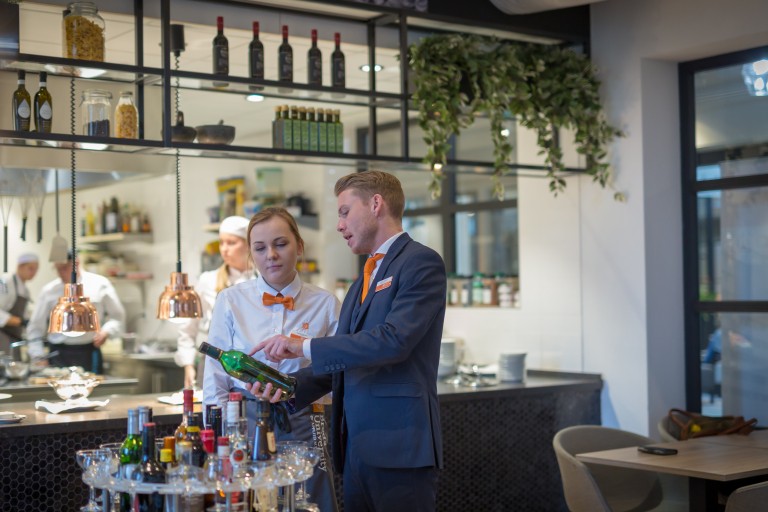
Training on the job
In a beautiful former convent complete with a lovely chapel, you will be trained on the job in Restaurant Sibelicious, our Taste Lab and the Visitor Centre.
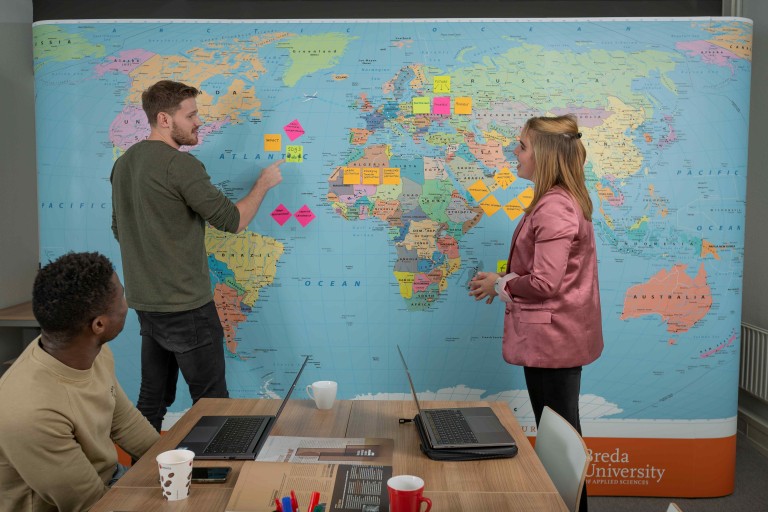
International
Our study programme is the only English-taught programme in the field of facility management in the Netherlands with a strong focus on internationalisation.
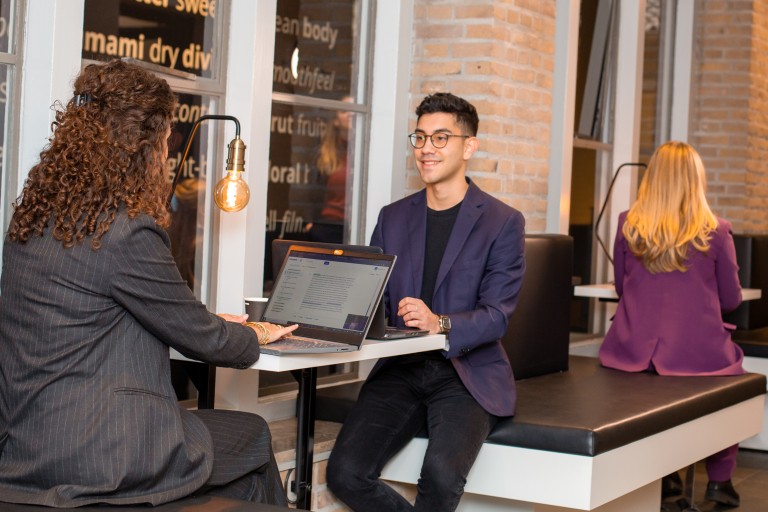
One-to-one coaching
A personal coach will monitor your progress and development throughout your studies and will encourage you in your academic discovery.
Admission & application
- What are the admission requirements?
-
To be admitted to this degree programme, you need a higher general secondary education (havo) or pre-university education (vwo) diploma with an appropriate profile, or an equivalent of these Dutch diplomas. You can also be admitted with a secondary vocational education (mbo level-4) diploma.
- Check out the complete admission requirements and the possibilities if you do not meet the requirements
- Additional requirements have been set for the 3-year track.
- What does this study programme cost?
-
In the academic year 2026-2027 the statutory tuition fee for bachelor's programmes is €2,695. In addition, you should take extra costs for software, excursions, etc. into account.
- How can I apply?
-
If you meet the admission requirements, you can apply for this study programme. If you do so before 1 May, you can certainly start your studies.
What others say about Facility Management
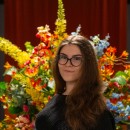
"FM: the best decision we’ve ever made"
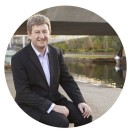
The graduates were exceptional
The graduates I took on board from Breda University were exceptional, having a thorough understanding of the basics of facility management and core skills like project management.
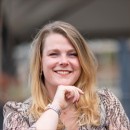
They enjoy what they are learning
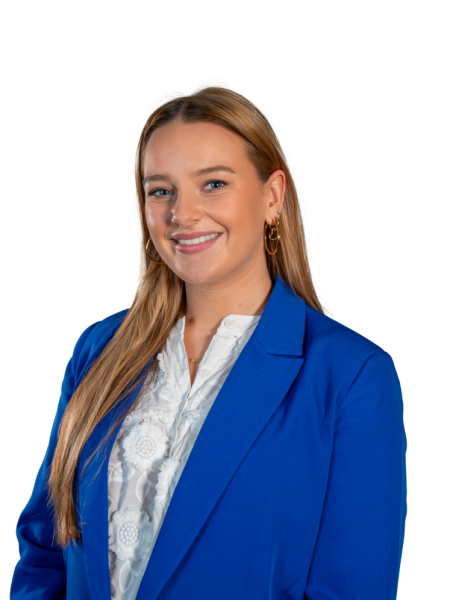
Your future starts here
- The job market needs you
Explore your career options - Choose your path
Discover your potential - Learn from the best
Graduates share their experiences
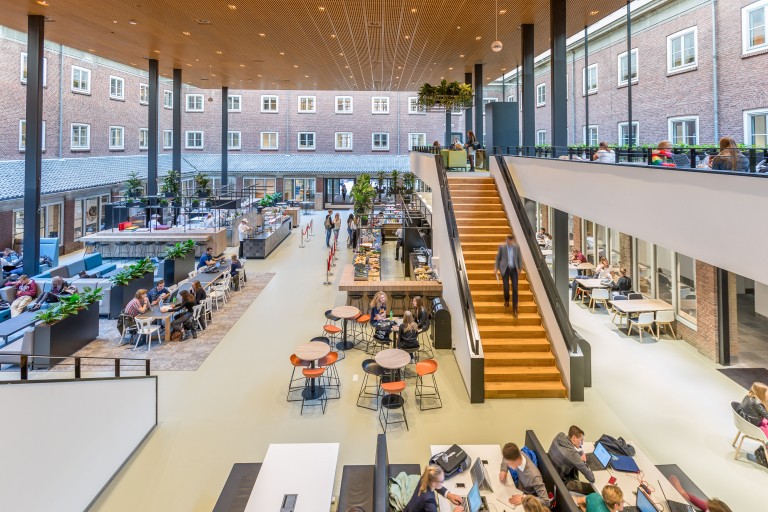
Virtual campus tour
Have a virtual look and discover the Horizon building where you’ll be studying and what more the campus has to offer.
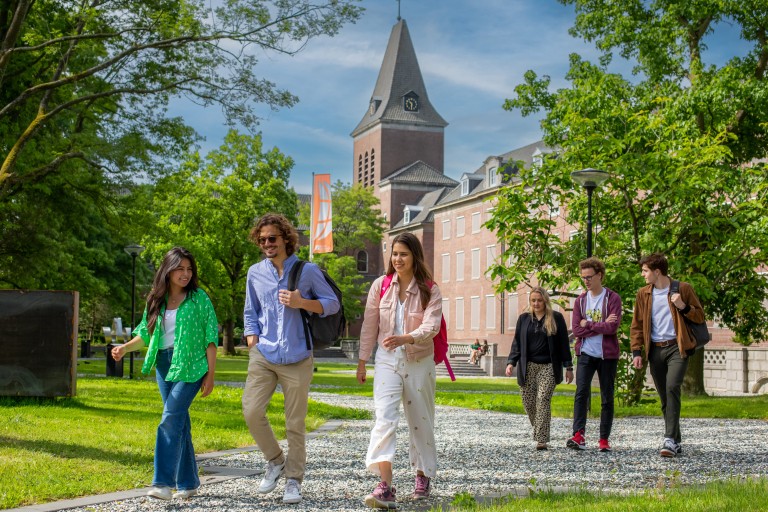
Studying at BUas
What is it like studying at BUas? What does the campus look like and what activities can be undertaken? Is Breda actually a vibrant university town?
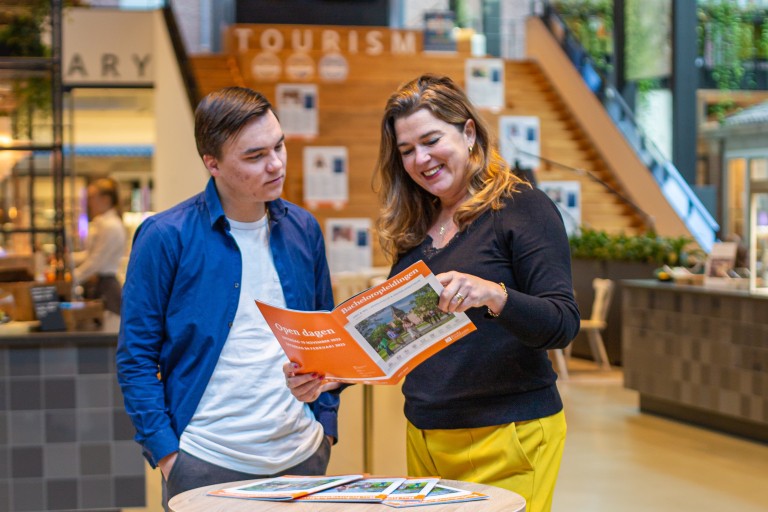
Assistance in choosing your study programme
Do you already know exactly what you want to study or do you not have any clue at all? Find out, compare and choose your professional/ academic bachelor’s or master’s programme at BUas.

